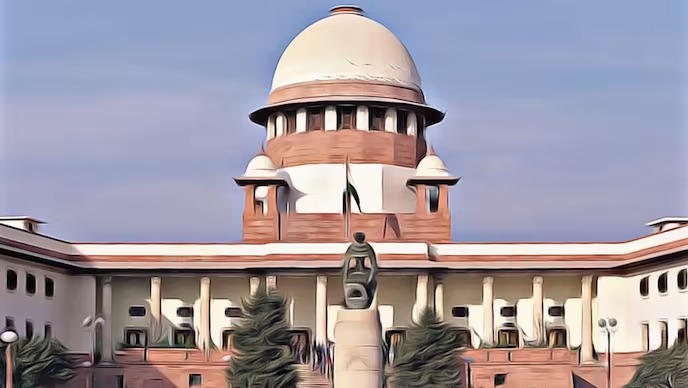Mitter, J.@mdashThe Petitioner in these two rules applied to set aside two sales of certain properties under Or. 21, r. 90 of the Code of Civil Procedure. In one of the rules the property in question was gold in execution of a decree for arrears of rent, obtained by decree-holder Opposite Party for Rs. 73 and odd. The value of this property was found by the Munsif to be Rs. 1,600. The decree-holder was the auction-purchaser. The property in question in the other rule was sold for Rs. 32 and odd and the value of the said property was found by the Munsif to be Rs. 386 and odd. The purchaser in this case also was the decree-holder in a suit for arrears of rent. The Petitioner alleged non-service of sale proclamation and suppression of all processes in connection with the same and fraud and material irregularity in conducting and publishing the sales. The Petitioner applied within thirty days from the date on which he first came to know of the sales. The Munsif held that there was no evidence worth the name on the side of the decree-holder to show that the writ of attachment and sale proclamation were served on the auction-sold lands in these cases. He pointed out that Abdul Kader, Nobin Sing and Jabbar Ali who are said to have pointed out the lands sold at the time of the service of the writ of attachment and sale proclamation have not been examined. The Munsif further found that it has not been established in the case that the advertisement of the sales in question in the "Tripura Hitaishi" was seen by the Petitioner. He found that the applications were presented within 30 days of the dates when the Petitioner came to know of the sales and he held that the Petitioner has suffered substantial injury as the result of the material irregularity and fraud in publishing and conducting the sales. The Munsif set aside the sales. The decree-holder auction-purchaser preferred two appeals against the order setting aside the sales to the Court of the Subordinate Judge and the learned Subordinate Judge held that the applications were barred by limitation and that there was no fraud and irregularity in publishing and conducting the sale as the processes were properly served. He held, however, that the prices fetched by the sale were certainly inadequate but as there was no fraud or irregularity the sale could not be pet aside. The Subordinate Judge accordingly confirmed the sales.
2. These two rules were obtained for the revision of the appellate order of the Subordinate Judge in both the applications for setting aside the sales. It is contended for the Petitioner that the Subordinate Judge has exercised his jurisdiction with material irregularity in holding that the processes were properly served although the most important witnesses on whose identification Adhar, the identifier, was said to have served the sale-proclamation and writ of attachment have not been examined. It is argued that the identifier''s deposition shows that he did not know the property sold himself and that he had to take the help of a man of the locality for the identification of the properties in question. It seems singular that the Subordinate Judge would in the absence of the most material witnesses who identified the lands should hold that there had been a proper service. The Subordinate Judge failed to realize that when properties were sold for a grossly inadequate price and an application is made to set aside the sales, it is the duty of the final Court of fact to scrutinize with great care the evidence of service and to require the best evidence of such service. The evidence of service of the sale and attachment processes on which the Subordinate Judge relied is the evidence of a person who did not know the land on which he was effecting the service and such evidence is indeed absolutely valueless, in the absence of the evidence of persons on whose identification the identifier acted. To base a judgment on such evidence is a material irregularity in the exercise of the Court''s Appellate Jurisdiction and vitiates his judgment on the important question of fact as to whether the services were properly effected. It has been strenuously contended by Mr. Akhil Chandra Dutt that I have no jurisdiction under sec. 115 of the CPC to interfere with findings of fact. That would indeed be so if the finding of fact had been properly arrived at, i.e., arrived at on a scrutiny of all relevant evidence and after consideration of the presumption to be drawn against the decree-holder from the non-examination of persons who are the most immaterial witnesses to prove the identification of the lands on which the law require the service of processes to be effected. The learned Judge of the Appellate Court misdirected himself on the question of fact in not drawing unfavourable inferences against the regularity of the sales from the decree-holder withholding from the witness-box the witnesses who alone could have identified the land. The lower Appellate Court misdirected himself in not considering the circumstance that the inadequacy of price fetched by sales in these two cases was so great as to shock the conscience and such inadequacy was itself valuable evidence of fraud in publishing and conducting the sales. There is another misdirection in point of law on the question of the knowledge of the Petitioner of the dates of the sales. The learned Subordinate Judge assumes that merely because the Petitioner was a subscriber of the "Tripura Hitaishi" he must have read the sale-notification, The law requires, however, that in order that a notification in a newspaper may amount to actual notice to a subscriber of the said newspaper, it must be shewn that his attention was drawn to the said notification. The finding on the question of limitation is vitiated by the Courts imputing notice to the Petitioner by reason of his being the subscriber of the newspaper "Tripura Hitaishi." I think that justice required that before the sale could be confirmed the decree-holder auction-purchaser should have produced all material witnesses of service of the sale and attachment processes and the Munsif was right in setting aside the sales in the absence of such evidence. The order of the lower Appellate Court must in the circumstances be set aside and that of the Munsif restored. The result is that the sales are set aside. The rules are made absolute with costs one gold mohur in each case which the decree-holder auction-purchaser must pay to the Petitioner.

